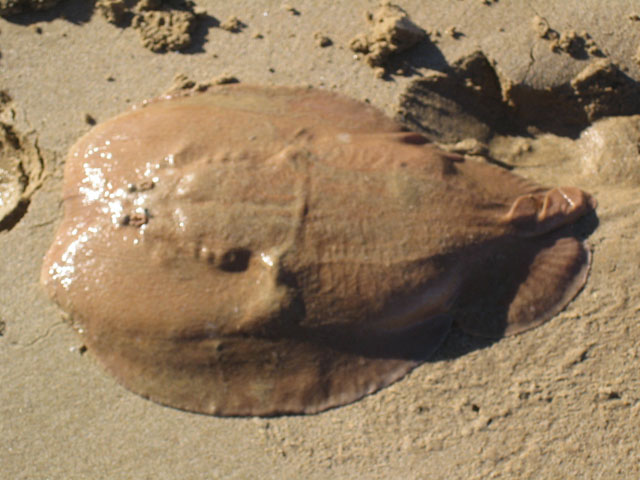| Hypnidae (Coffin rays) |
| 70 cm TL (male/unsexed) |
|
reef-associated; marine; depth range 0 - 240 m |
| Indo-West Pacific: endemic to Australia. |
|
|
| Occurs inshore and offshore, ranging from the intertidal to 240 m depth (Ref. 9910, 12951). Found buried on sand and mud bottoms; sometimes found stranded out of water by the tide but is capable of surviving for hours (Ref. 9910). Feeds on crabs, worms, and fishes. It was reported that larger fishes, similar size to themselves have been found in the stomachs of Coffin rays, ingested whole through the large gape (Ref. 114953). Ovoviviparous (Ref. 50449). Maximum length probably to 92 cm TL (Ref. 9910). Both sexes mature at 40-48 cm TL; born at ca. 8-11 cm TL (Ref. 114953). A slow-moving species which uses its electric organs to stun prey. Also stuns people when accidentally stepped upon or handled (Ref. 9910). |
|
Least Concern (LC); Date assessed: 24 February 2015 Ref. (130435)
|
| other |
|
Known from tropical and warm temperate waters, from Broome in Western Australia to St. Vincents Gulf in South Australia; also from Caloundra in Queensland to Eden in New South Wales (Ref. 6871). Common inshore (Ref. 6871). Gives birth in the summer (Ref. 12951). |
Source and more info: www.fishbase.org. For personal, classroom, and other internal use only. Not for publication.

